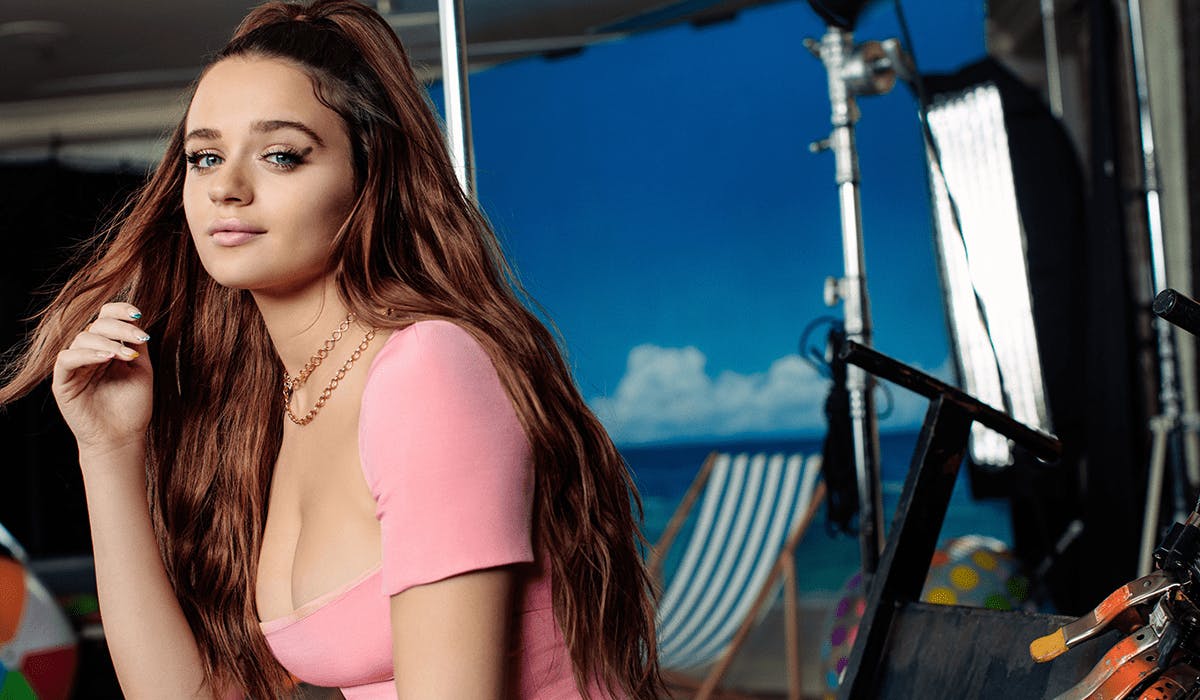The end of millions of fans’ favorite trilogy isn’t slowing this producer-actor superstar down.
Even before The Kissing Booth was released, the 2018 film adaptation of hit book series by Beth Reekles about never-been-kissed high schooler (turned kissing booth operator) Elle Evans was a full-on sensation, to the great delight of star Joey King. “It felt like we were filming this little movie,” she recalls. “We didn’t know if anyone would see it, but we were okay with that because we were having so much fun. When the trailer dropped, the next morning, there were millions of views. That’s when I had the first inkling that this might be a big deal, but I had no idea what was going to come.”
Kissing Booth mania ensued. Across social media, fans debated Elle’s Shakespearean dilemma: Should she remain loyal to lifelong best friend — and Dance Dance Revolution partner — Lee Flynn (Joel Courtney) or pursue her forbidden crush on Lee’s older brother, school hottie Noah Flynn (Jacob Elordi)? The cast’s chemistry paired with the film’s whimsical rom-com storyline earned The Kissing Booth 66 millions viewers in its first month of streaming and became Netflix’s most rewatched film of 2018. In 2020, we returned to the story with The Kissing Booth 2, which saw Elle flirting with transfer student Marco Peña (Taylor Zakhar Perez) while boyfriend Noah was away at Harvard. In The Kissing Booth 3, which debuts this week, the gang is back together for the summer, as Elle decides between attending Harvard with Noah or going to Berkeley with Lee. Fortunately, she has the benefit of sage guidance from Noah and Lee’s mom, played by former queen of teenage angst, Molly Ringwald.
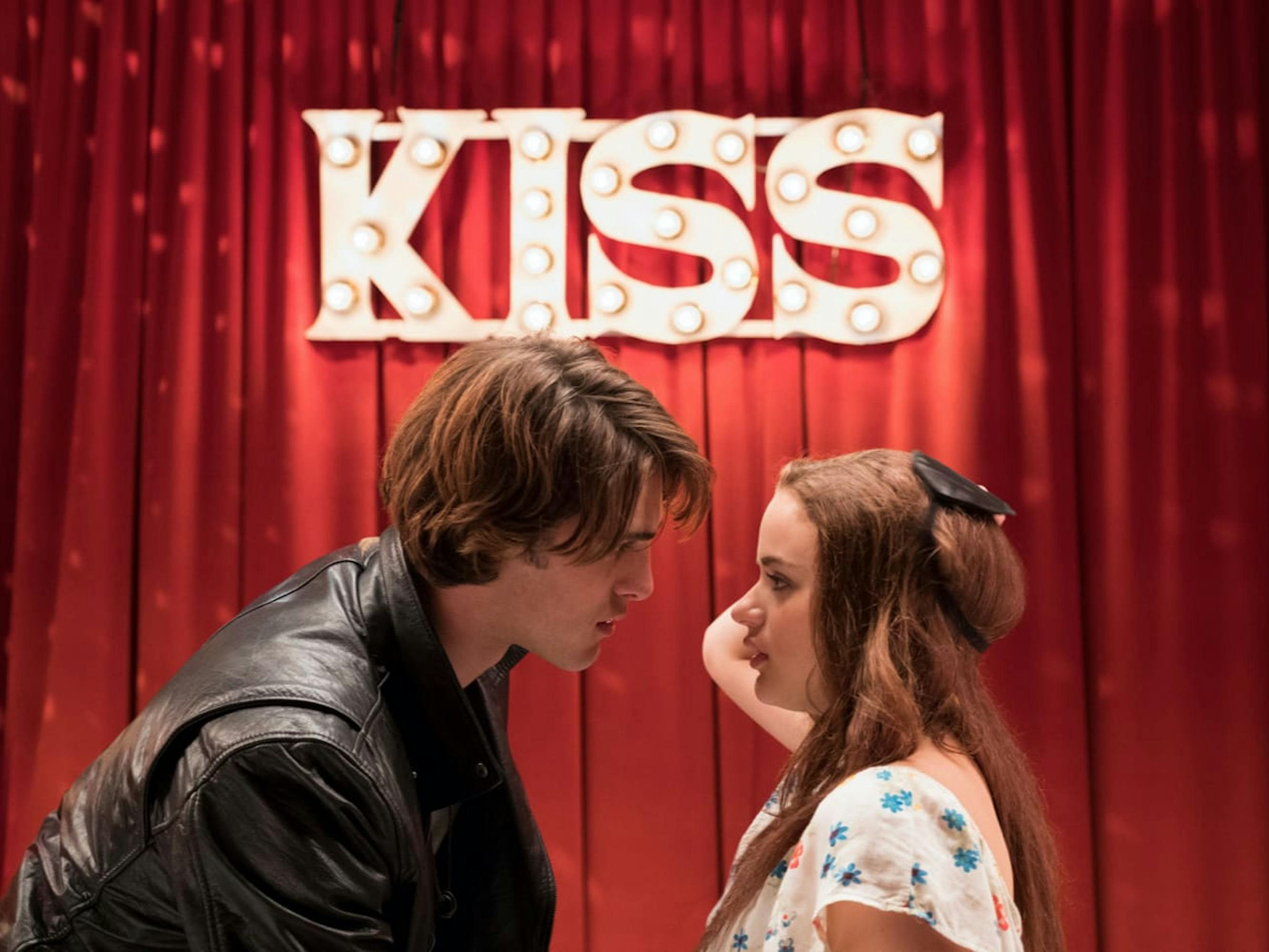
Noah Flynn (Jacob Elordi) and Elle Evans (Joey King) in The Kissing Booth (2018)
As The Kissing Booth trilogy comes to a close, Joey King reflects on the experience. “We filled this craving that people had of wanting to watch something fun that reminded them of childhood,” King says. “I feel like people can see that we all care about each other and that we’re having a blast. Joel Courtney is one of my best friends in real life — we became best friends while filming that first movie.”
While fans may know King best as their beloved Elle Evans, her impressive acting career actually began at age four. She’s starred in such films as Ramona and Beezus; Crazy, Stupid, Love.; Oz the Great and Powerful; White House Down; and The Conjuring. In 2019, her performance depicting well-known Munchausen syndrome by proxy victim Gypsy Rose Blanchard, a young woman manipulated to believe she’s chronically ill by her mother, played by Patricia Arquette, in the true crime series The Act netted her nominations at the Emmys, the Golden Globes, and the Screen Actors Guild ceremonies — an impressive feat for anyone, let alone a performer just shy of her 20th birthday.
These days, King’s embracing her inner action heroine for a pair of projects: The Princess, a movie she describes as “Rapunzel meets The Raid: Redemption,” and Bullet Train, a star-studded thriller that sees King opposite powerhouses Brad Pitt and Sandra Bullock. (“Brad Pitt is the titan of all generations,” she raves.) The young actor has recently expanded her skillset to producing and hopes to share her well-earned industry knowledge with those around her: “I’ve had a lot of thoughts and opinions — whether it be a casting opinion or an opinion on what the next set-up should be. I feel like now I’m able to respectfully give these opinions that will either better my experience, better someone else’s experience, or teach me something.”
Krista Smith: The Kissing Booth has become such a phenomenon. Millions of people have watched these films. With this latest success, do you feel like you’ve arrived?
Joey King: I do. What’s crazy to me is that it feels like the masses were like, Oh, Joey King has arrived! But it was funny because I’ve been acting since I was four years old. I’ve been very lucky to have been steadily working from the time I was nine on amazing movies and TV shows where I wasn’t the lead. I was the kid in the movie, or maybe a cool background character. Even in White House Down, I was a bigger character, but I was still younger. I’m grateful that I’ve had so many years of experience to be able to handle the attention now.
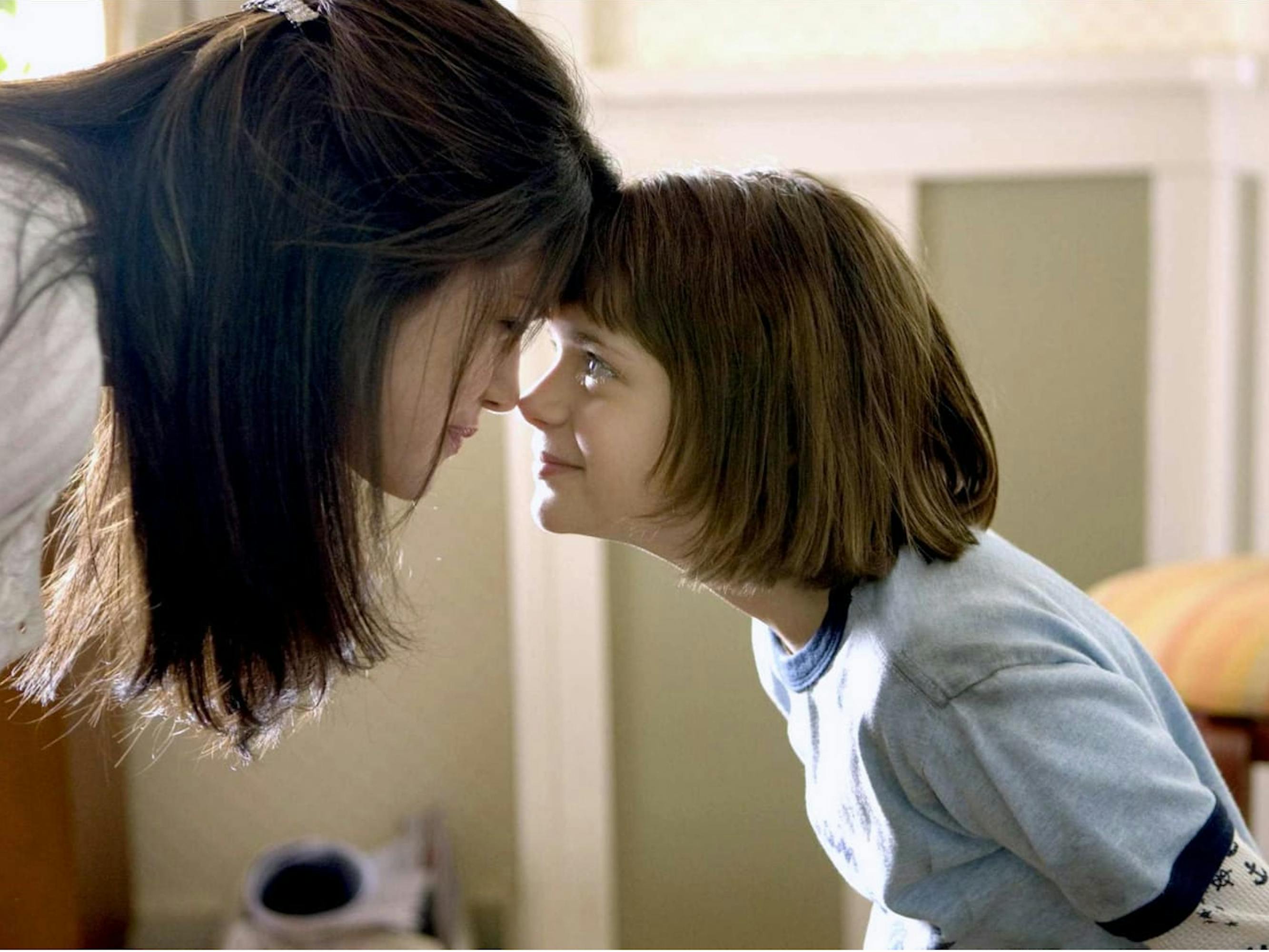
Beezus Quimby (Selena Gomez) and Ramona Quimby (Joey King) in Ramona and Beezus (2010)
Allstar Picture Library Ltd. / Alamy Stock Photo
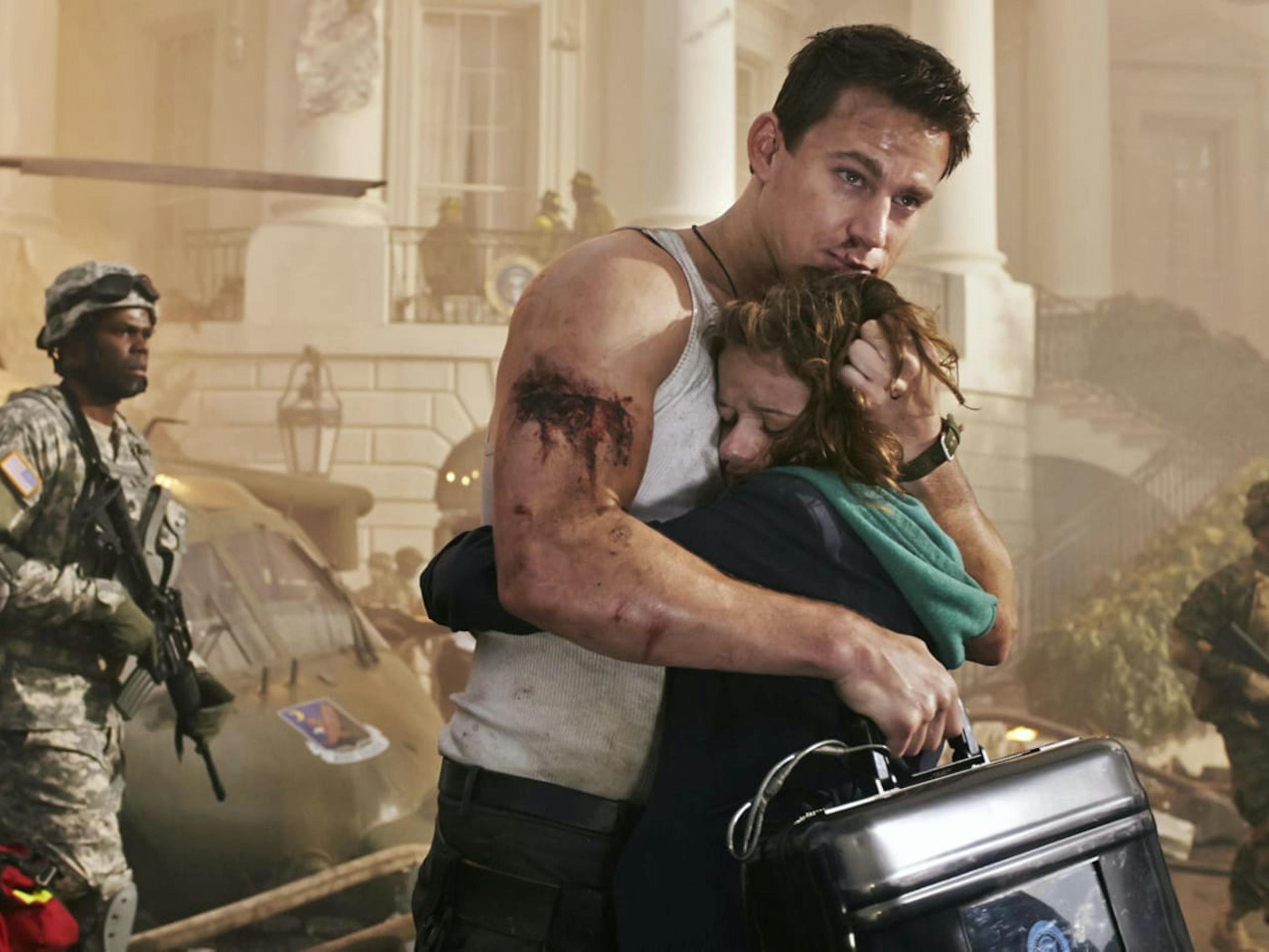
Cale (Channing Tatum) and Emily (Joey King) in White House Down (2013)
Moviestore Collection Ltd / Alamy Stock Photo
Your resume is kind of staggering. When you look ahead, what do you want your career to look like, let’s say for the next decade?
JK: I want to do stuff that’s different from what I’ve done before. I want to keep surprising myself, and I want to keep surprising people. I want to be able to jump from something like The Act back to The Kissing Booth, then to something like The Princess. I don’t want to stay in any kind of box, which is why I’m so happy I have this first-look deal with Netflix now. I’ve been able to get into producing, and I’ve been able to have more of a say in what I want to do, what I want to put my name on, and what I want to act in. I feel like I have a lot more freedom.
I’m also in this position where I’m able to learn so much that I’ve always wanted to learn.
Joey King
As someone who began working at such a young age, how have you stayed so grounded? Is that a conscious decision? Is it the people around you?
JK: It never felt like a conscious choice or even a decision to stay grounded. I wouldn’t even have labeled myself as that because my family was so good at making sure I had a normal life and that I was able to have fun. I was never made to feel like I couldn’t be myself, or I had to be a certain way, or I had to get a role, or otherwise my family would be disappointed in me. Everything was a celebration. My mom would always give me a lovely pep talk when I was younger; before I would go in for auditions, I would get nervous. She would look at me and say, “What’s the worst that could happen? You don’t get it? There’s nothing wrong with that.” Being raised with the idea that this was a fun thing that I was doing, that it’s not supposed to feel scary — that’s probably the main reason why I’ve maintained a lot of normalcy. It’s always felt like something I wanted to do. That feeling has stayed with me from the time I was four to now because I was able to make my own decisions, even as a kid.
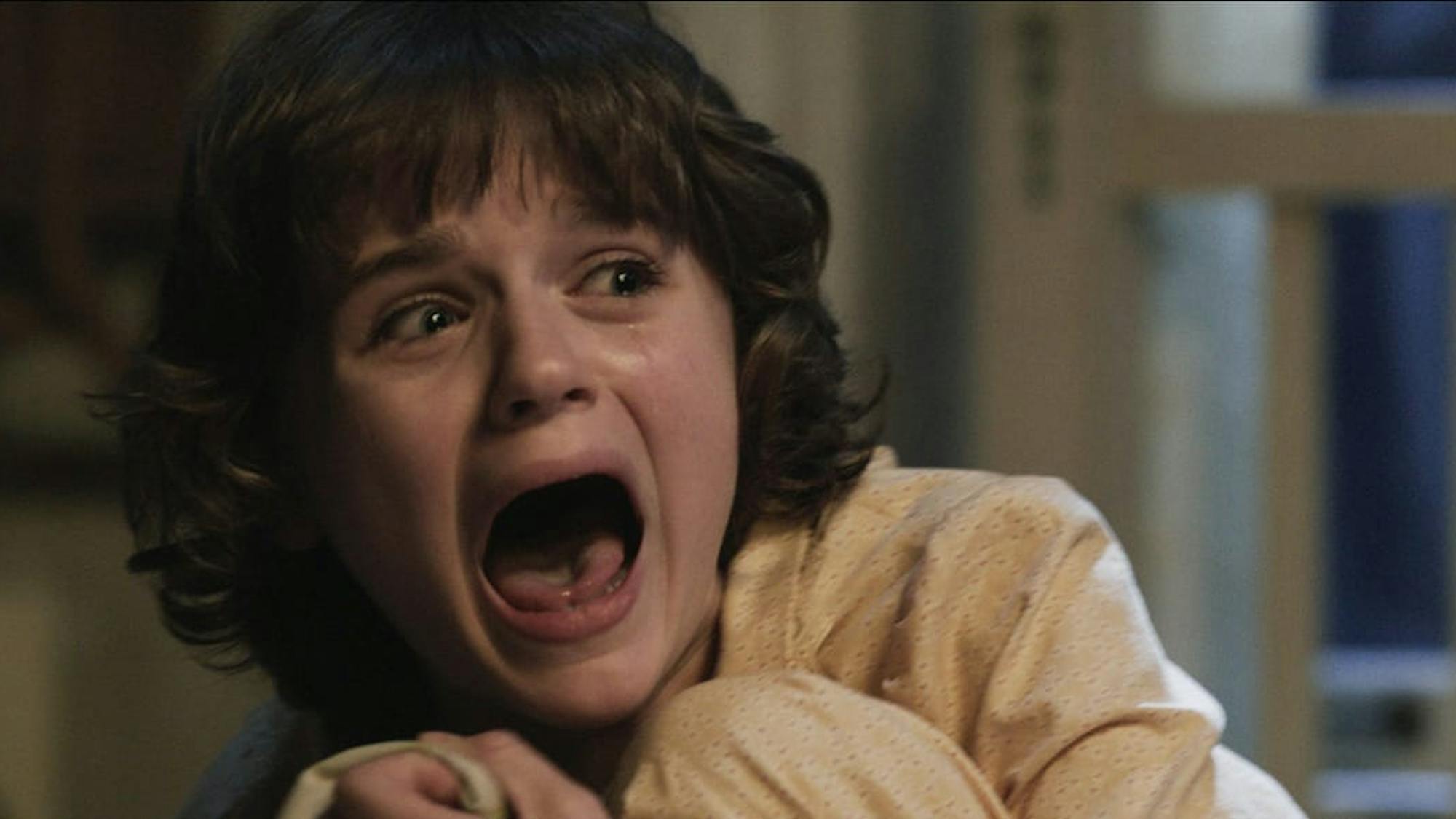
Christine (Joey King) in The Conjuring (2013)
Picturelux / The Hollywood Archive / Alamy Stock Photo
At four, most kids don’t know what their life’s purpose is. What was that trigger that made you think, I want to be an actress.
JK: It started with my oldest sister, Kelli. She had this big head of gorgeous curly black hair when she was younger and this angelic face. People would stop my mom in the street and say, “You gotta get that kid into showbiz!” My mom was like, I don’t know... maybe for a college fund. So, for her, it started as something that was like, I want my kids to have their own financial system when they’re older. Then my sister Hunter and I came along, and we’d all go to theater classes together. I liked being the center of attention. It progressed from classes into commercials and then TV spots. But the first time I grasped what kind of responsibility this was, and how much I loved it, was on Ramona and Beezus. I was thinking to myself, Wow, I’m having so much fun, and I get how big of a deal this is that I’m the lead in a movie. Being able to compute that responsibility and still love it that much — that feeling has stayed consistent.
Do you feel you have a real understanding of the craft at this point? Do you feel like you know what you’re capable of?
JK: The older I get and the more experience I have, the more I find myself being like, Oh boy, am I doing a good job? When I was younger, I never had those questions. I was like, I’m on set, I’m loving life, and I’m making friends. Now, I’m also wondering, Am I good? I have times where I’m really proud of the work I did that day or proud of the scene I just did. You’d think that I would feel like I’ve honed my craft so much at this point because I’ve put in my ten thousand hours or more. But it goes in and out. I also think that’s a sign of growth. You can’t be a hundred percent all the time. You have to have some ability to say, “Okay, that wasn’t great. How can I make it better?” Or “That was really good. Objectively, I can say that was good.” It’s a little bit of a balancing act within my own brain of figuring out how to be kind to myself but also how to be realistic.
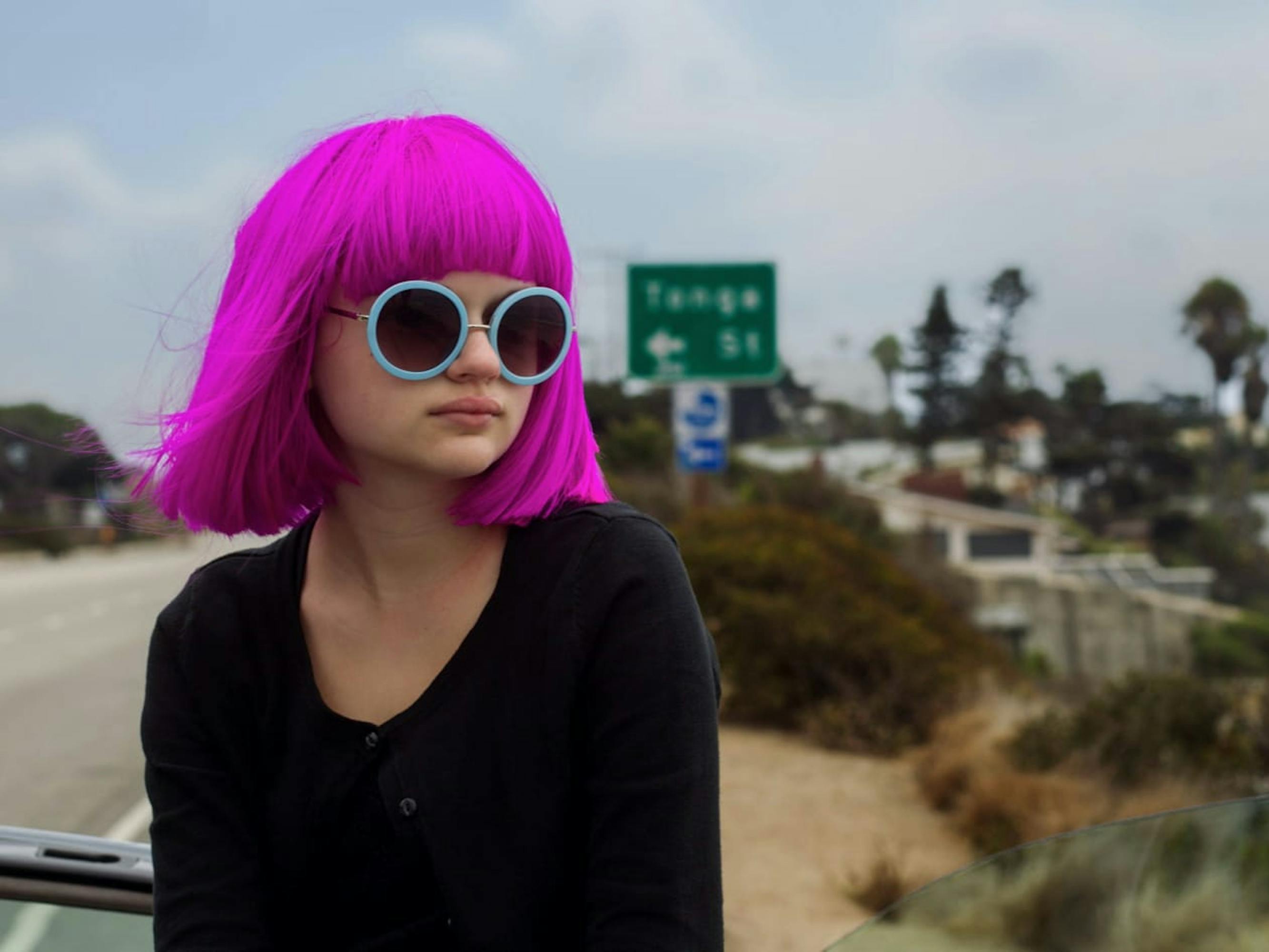
Grace Bloom (Joey King) in Wish I Was Here (2014)
Picturelux / The Hollywood Archive / Alamy Stock Photo
The actors and filmmakers you’ve worked with are extraordinary: Patricia Arquette, Steve Carell, Sam Raimi. What have you learned by observing them on set?
JK: Patricia Arquette is not only one of the most incredible actresses I’ve ever had the pleasure of witnessing, she’s also one of the most incredible people I’ve ever met. From working with actors like her to all these amazing filmmakers I’ve had the opportunity to work with, I’ve learned the right questions to ask, whether it’s a creative question or a safety question. For example, there was a scene in The Act where I was exposing my body on camera. Patricia took charge of that day for me. She was saying, “This is what we need in this room, and this is what this person needs to do. And is there a cover over the focus puller’s monitor?” She was asking all these questions that I never even thought about for my own safety. That blew my mind. She’s lived this. She had to learn to ask these questions the hard way. I was so grateful for someone like her, willing to take me under her wing and show me these things. That’s been my experience with a lot of the people I’ve worked with.
Is that why you want to produce? To have your own agency and your own investment in the projects that you are lending your name to?
JK: I’ve had a lot of thoughts and opinions — whether it be a casting opinion or an opinion on what the next set up should be. I feel like now I’m able to respectfully give these opinions that will either better my experience, better someone else’s experience, or teach me something. Here’s the thing — just because I have opinions doesn’t mean I know everything. I’ve been acting such a long time, and I still have so much to learn. So, what’s fun for me is, yeah, I’ve got ideas and I’ve got opinions, but now I feel like I can share those. I’m also in this position where I’m able to learn so much that I’ve always wanted to learn.
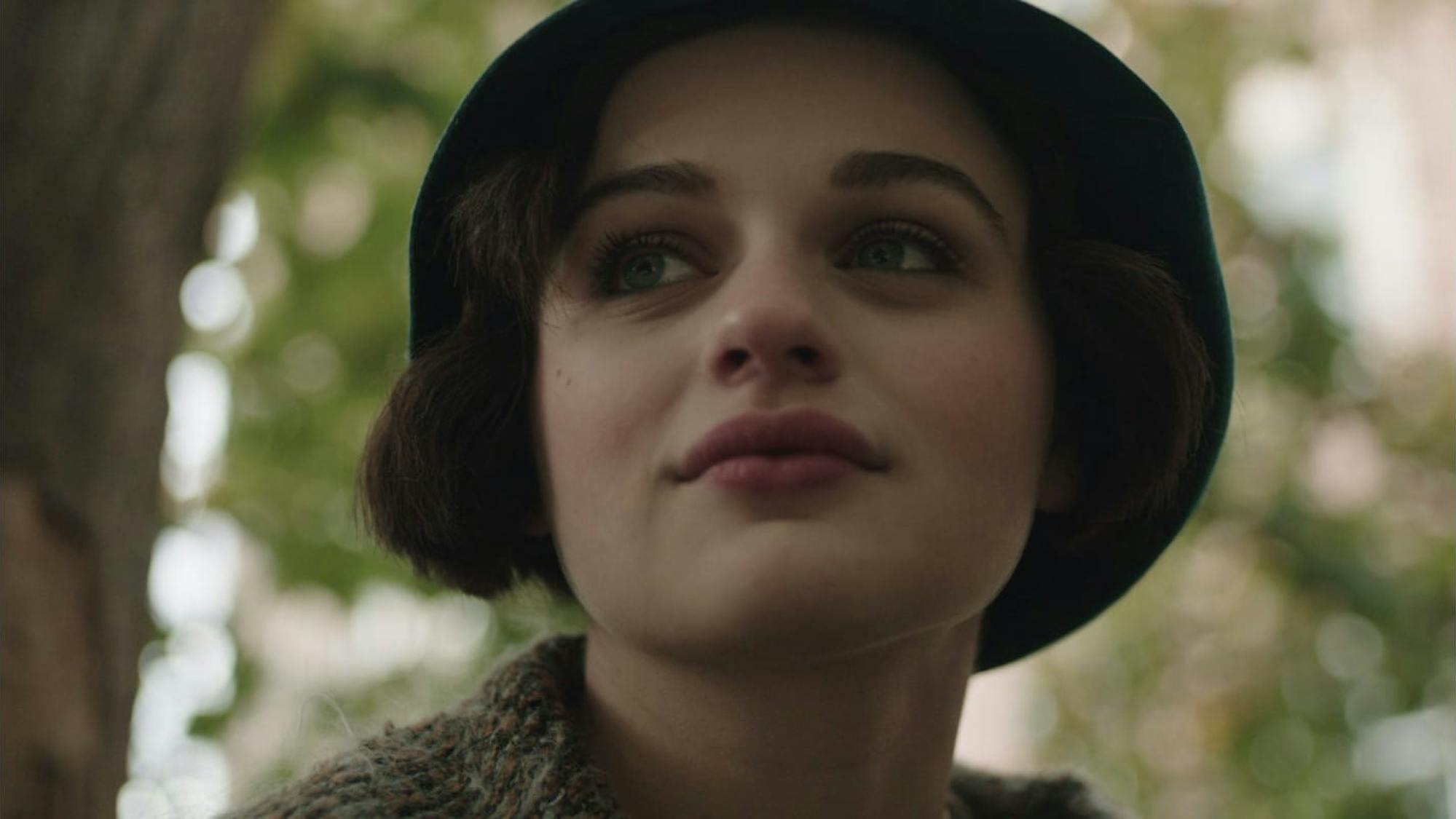
Bessie (Joey King) in Radium Girls (2018)
Courtesy of Netflix
Do you still get nervous before the director calls “Action”? Do you still have butterflies at all?
JK: In an action movie, absolutely, because if I do something wrong, someone could get hurt, whether it be me or someone else. I also get those nerves before a big emotional scene. But there’s nothing like that feeling between “Action” and “Cut.” I’m so zeroed in. I’m so focused. I’m thinking about nothing else. It’s an amazing, therapeutic feeling. A big calm washes over me a lot of the time before I do scenes and before I shoot. That’s a really good feeling.
You’re so young, and you’re so successful. Many people look up to you for the right reasons. When I look at your Instagram, it feels very authentic. How do you navigate that? What kind of responsibility comes with that?
JK: That is the hardest thing to figure out. I just want to be myself on my Instagram. I want to show who I am because the best chance I have at controlling my narrative is just showing exactly what I am. People can take that and run with it. They can create whatever story they want. They can say that they hate me, or they can say they love me, but at least I know I’m being me. It is a lot of responsibility, and I have a lot of lovely young women following me who go through a lot of the same things I do. I’m happy to be able to say it stresses me out because I know it stresses a lot of people out.
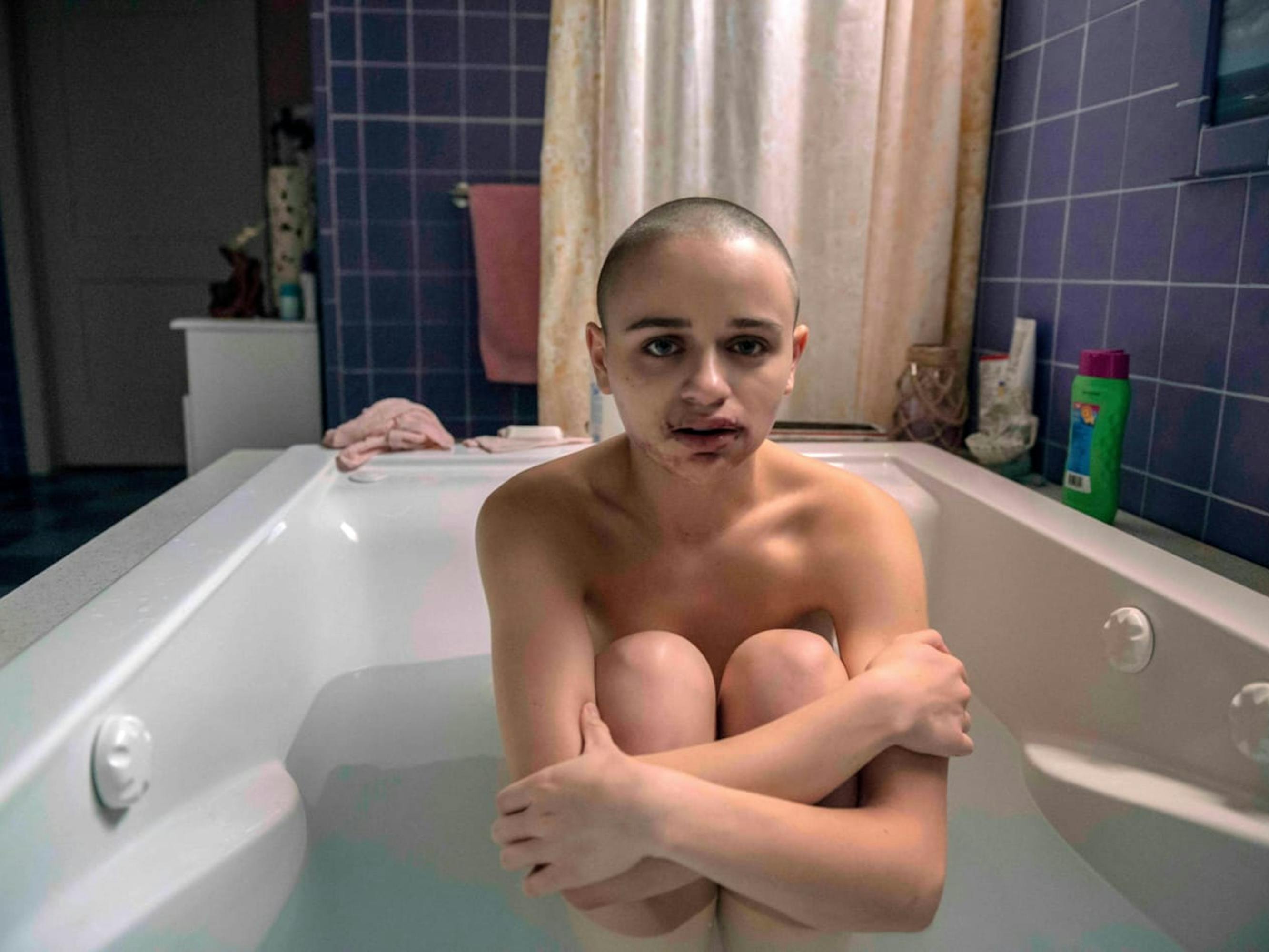
Gypsy Rose Blanchard (Joey King) in The Act (2019)
Album / Alamy Stock Photo
So, looking ahead once more, if we’re doing Vegas odds, do you think we’ll get a Kissing Booth reunion in 10 years? Maybe?
JK: Saying goodbye to this character is hard because as much as I’m excited that we did the final chapter and everyone gets to see it, this character was a huge part of my life. The Kissing Booth really changed my life. Putting that to bed is heartbreaking. So, maybe I’ll revisit Elle Evans one day. But number three is wrapped up in such a great bow that I don’t know if it needs to be revisited. I don’t want to say “never” because I don’t set goals for myself that far in advance. If something happens in 10 years where they’re like, “You want to play Elle Evans again?” Maybe I’ll be like, “Sure, why not?”
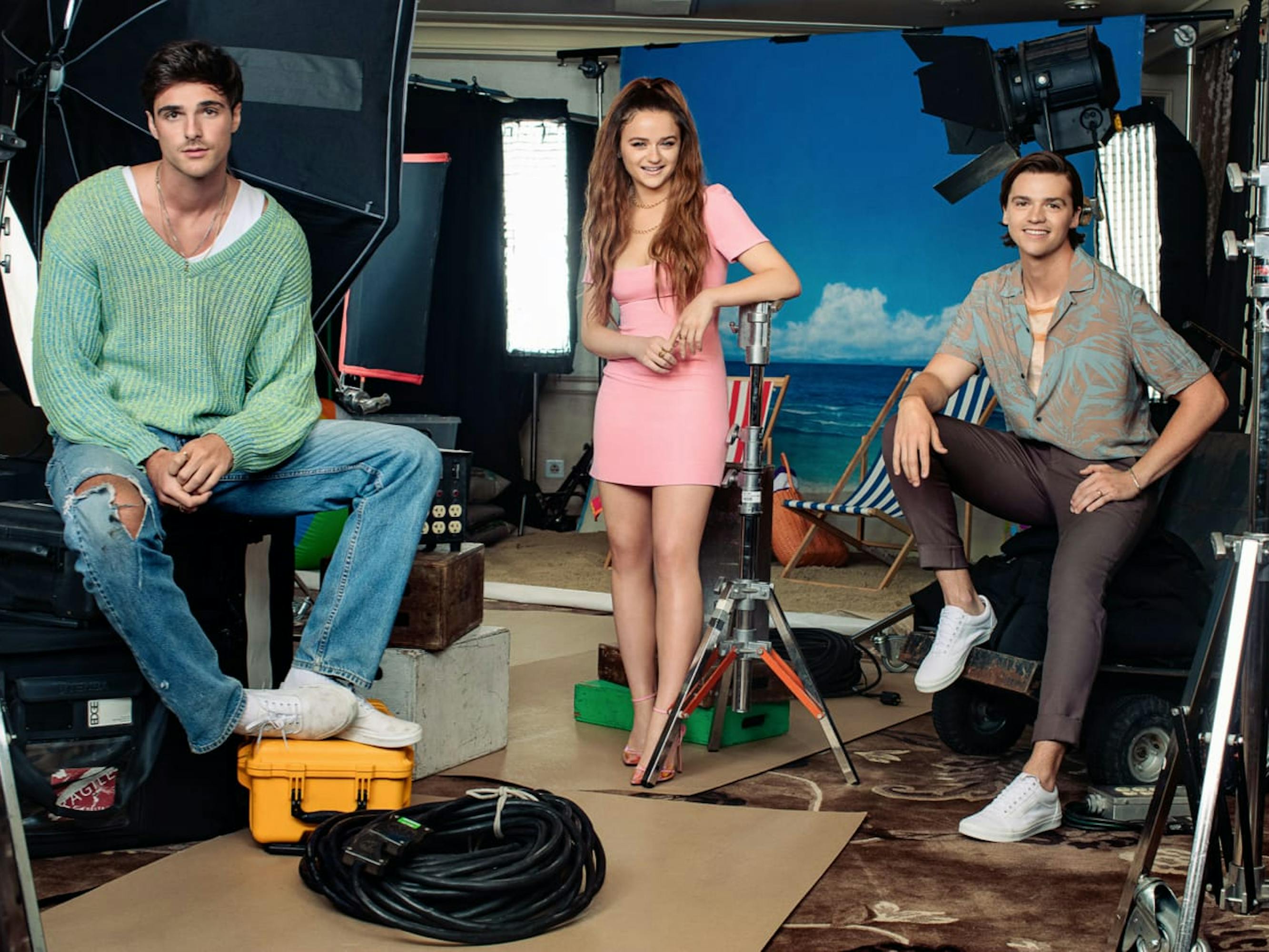
Jacob Elordi, Joey King, and Joel Courtney on set of The Kissing Booth
Maarten de Boer
